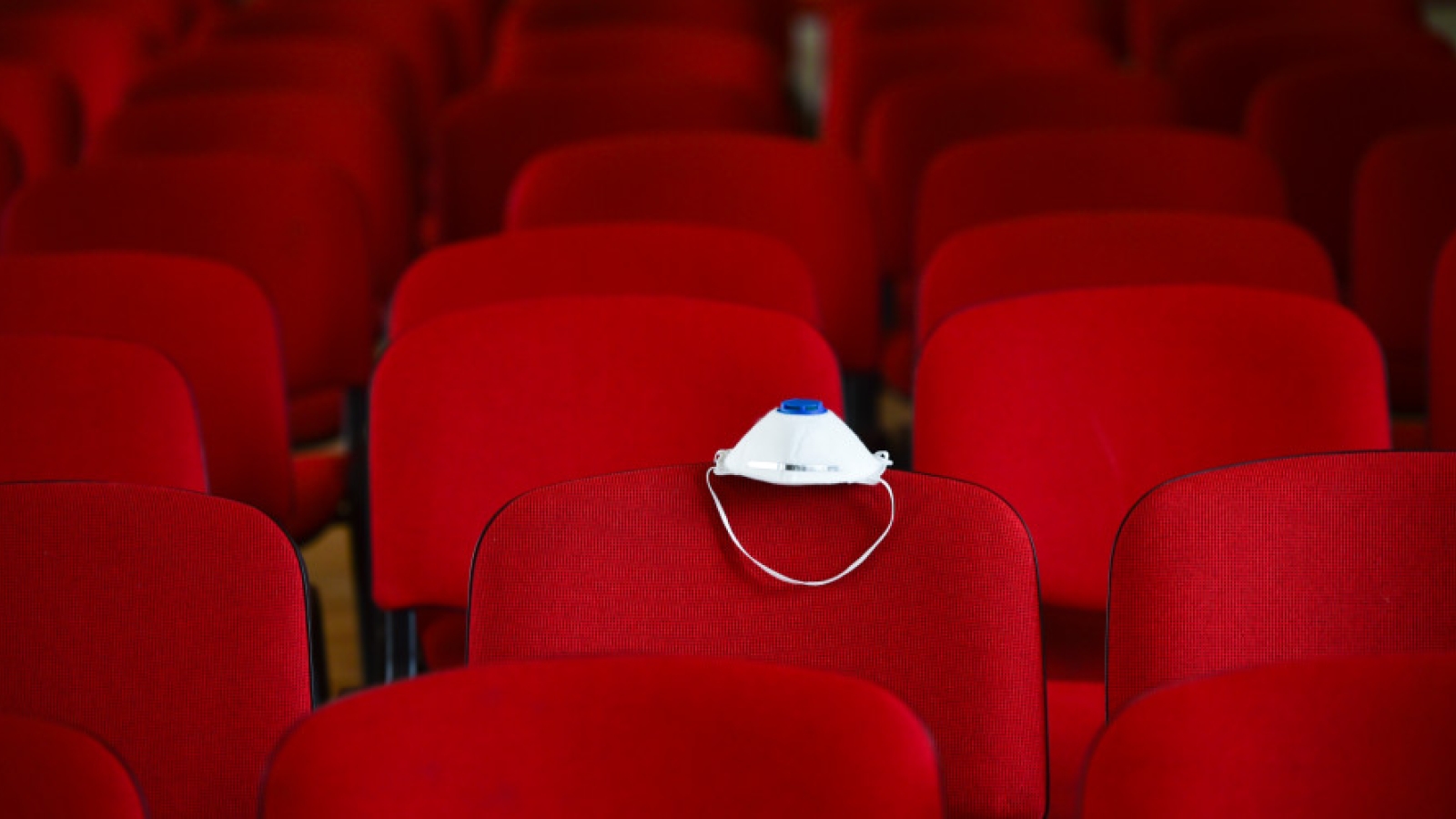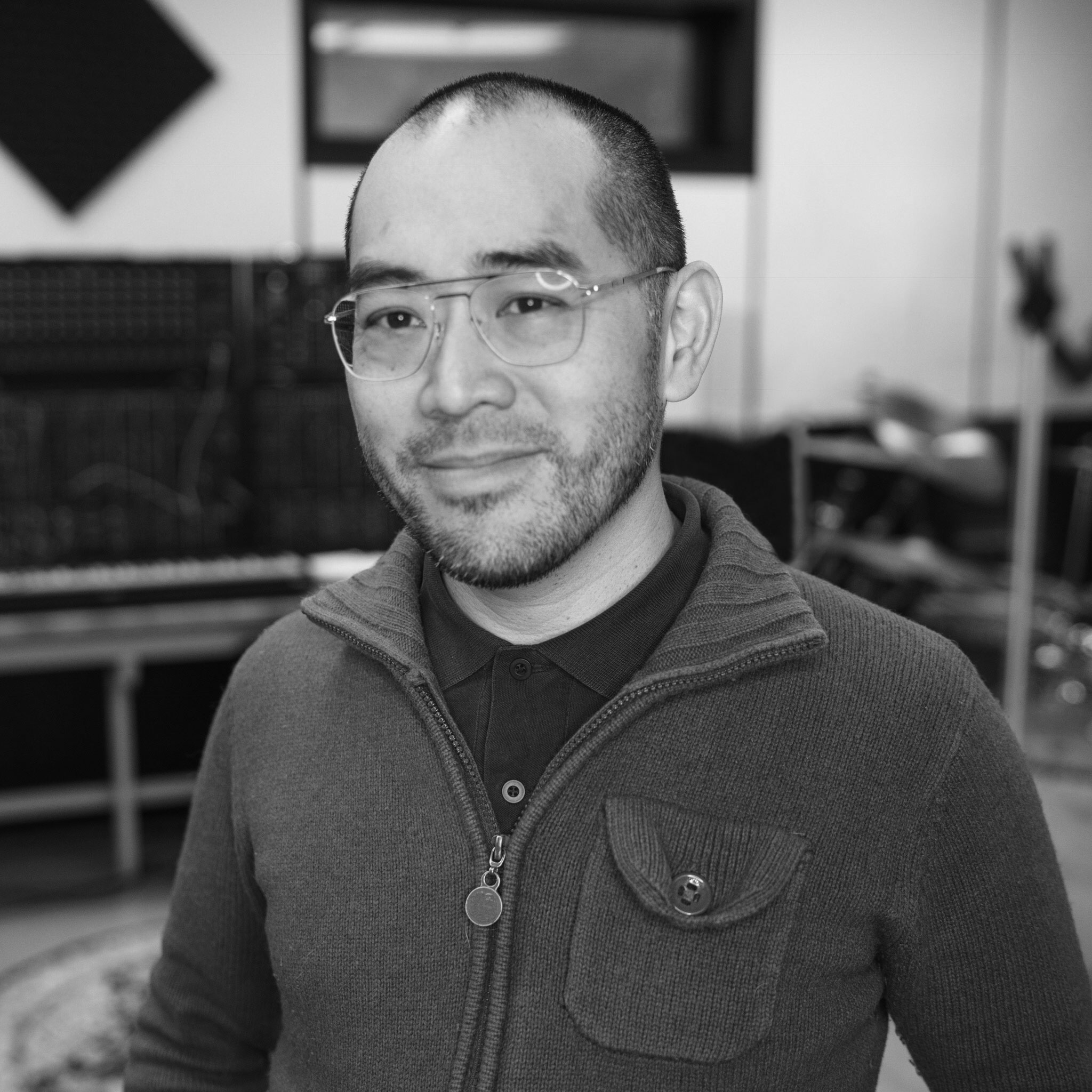The Sounds of Silence
Eugene Lew, Lecturer and Director of Sound and Music Technology in the Department of Music, reflects on a year without live performances.

In musical notation, the fermata is a symbol placed over a note or rest to show that it should be held for an unusual length of time. Fifteen months ago, most in-person musical performances stopped abruptly when COVID lockdowns began. Before then, Eugene Lew, Lecturer and Director of Sound and Music Technology in the Department of Music, had been going to at least one performance a week (“sometimes five a week”) and organized them for others. His events included Moon Viewing Platform, a large-scale performance and gathering space in the open air that featured music and videos and invited audiences "to enter another world through the senses and the imagination,” and MUSICA PRACTICA / ELETTRONICA VIVA, a series of electronic music performances and events, which continues to be made possible by a Sachs Art Grant.
“I had been working on some performances and collaboration with Yuka Yokoyama at the Japan American Society of Greater Philadelphia, which involved a group from Japan,” says Lew of March 2020. “And obviously, that got canceled. And then, there's just so many. Everyone, everything got canceled.”
Like many, he expected the pause to be a few weeks long. As shut-downs stretched out, artists began to adapt. “Early on there was a run on equipment like recorders or USB microphones, and shipping delays because of the pandemic,” he says. Many musicians tried to perform live online, but some ran into technical difficulties.
“Even with a real-time Zoom meeting, we’re actually viewing recordings, with a delay of 30 to 120 milliseconds,” says Lew. “We're interacting as recordings. And I have no idea what the person on the other end is hearing. So we end up having to try to describe what we’re doing, which we normally don’t have to do.”
Because of the technical problems, many artists pre-recorded their performances or turned to their archives. That’s valuable, says Lew, but it’s not really performance.
“I see performance as an opportunity to work with other people, to collaborate,” says Lew. “Maybe this will sound odd, but not very different from getting together and cooking with some friends or people you just met or your mom. And just as important. All of those moments that you can’t plan or schedule, you just have to be there, are what make things special to me. And obviously, we haven't had much of that of late.”
Musicians who derived almost all of their income from touring were not able to tour, and Lew points out that because many work essentially as independent contractors, they often didn’t qualify for any of the programs that were to lend a lifeline to people. (The Philadelphia Cultural Fund, the City’s Office of Arts, Culture and the Creative Economy, and the Greater Philadelphia Cultural Alliance did create COVID-19 Arts Aid PHL to help individual artists and small organizations.)
And venues have closed. “It seems to me that the large entities were less affected,” Lew says. “I know many had employees that had to be either laid off or furloughed. But when they were allowed to open, there were some rules put in place that basically hobbled the possibility of the smaller spaces being able to even break even. New York City had a rule that you could only have incidental music, whatever that means.”
Technology did let people perform together while staying distanced, and they could collaborate with and learn from people all over the world. Musicians, both amateur and pro, learned to do new things; groups performed from their cars using radio transmitters, or by using tech like JackTrip And the virtual life let people meet up without travel time, having to find a venue, or go out in the rain. “It’s been great for many reasons, but I'm sure we're all a little burnt out,” Lew says. “My eyes burned some days from being on the computer for so long.”
The class he taught in the spring of 2021, Electronic Music, usually doesn’t even use computers. He tried a software synthesizer but it competed with Zoom for processor time, so he sent a semimodular synthesizer, the Make Noise 0-COAST, to each student so they could compose at home. They were able to meet in person for their last class. “The energy was electric, and it was a relief to not be on Zoom,” says Lew. “We had one student in China and one in San Francisco on a screen. And we spent time listening to the same thing, because we were finally in the same place.”
The music department was able to arrange a few in-person rehearsals at the end of the spring semester—the orchestra, the Collegium Musicum, and Penn Samba played together outside. “Usually at the end of the spring semester, the schedule is crazy,” says Lew. “Sometimes there would be three concerts in one day.”
With restrictions now being loosened in Pennsylvania and around the country, Lew is once again creating in-person events. Right before the cold weather set in in October 2020, he helped to organize an outdoor quadraphonic concert; in April they held another: “It was fantastic.” Both raised money for Philadelphia’s People’s Kitchen; they’re planning a third. He has a number of other events in the works.
“I think everybody will be happy to not be on Zoom, for sure. But simultaneously, I think a lot of people will be like, ‘This is so inconvenient. I mean, I actually have to get up, shower, get dressed, and go somewhere else.’” he says. “I'm still a little worried about how resources might be shifted to virtual things, online things to the detriment of in-person things. I still think that being in person, literally sharing the same air, is where it’s at. The air is the medium for sound transmission.”
Check Lew’s MUSICA PRACTICA / ELETTRONICA VIVA page for information on events he’s involved with.



